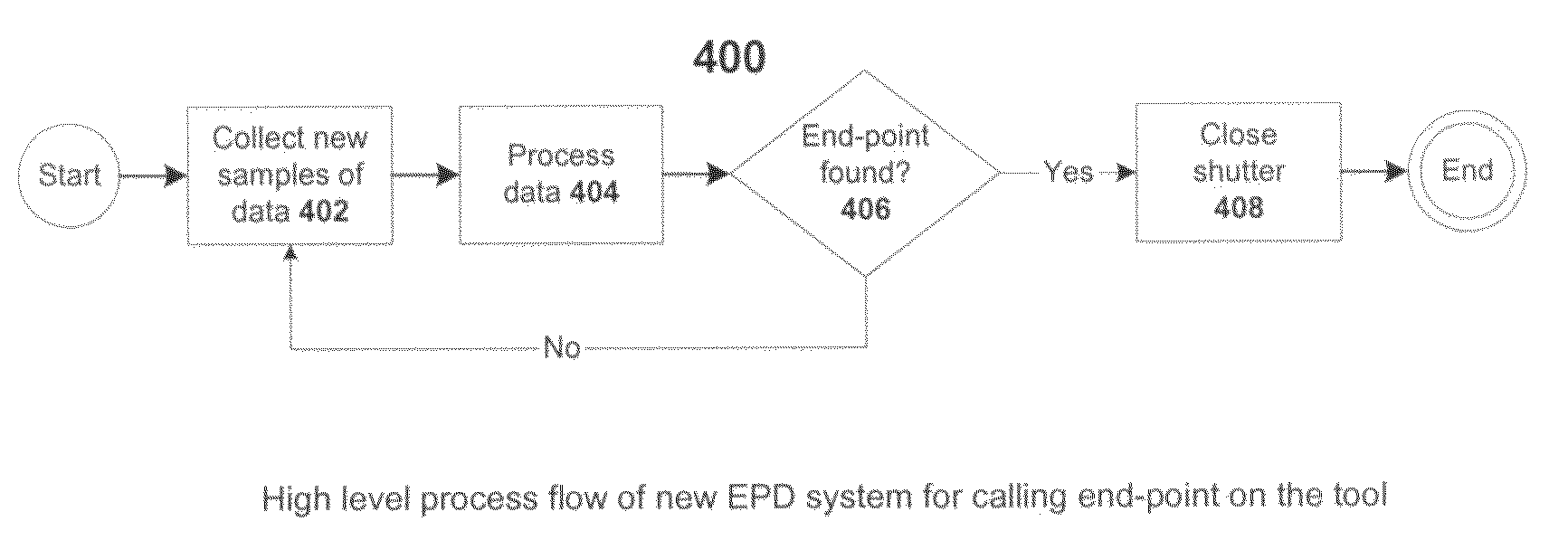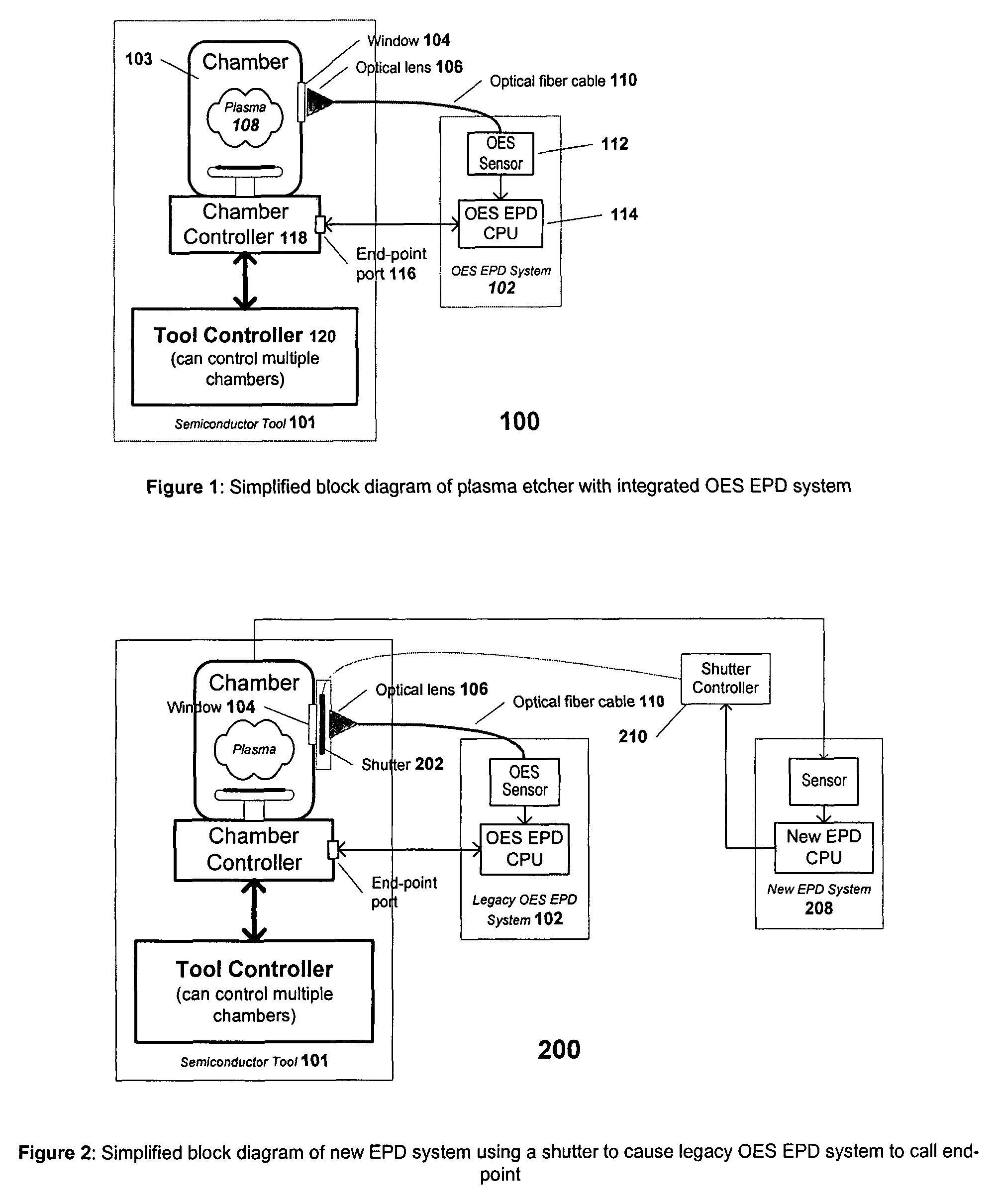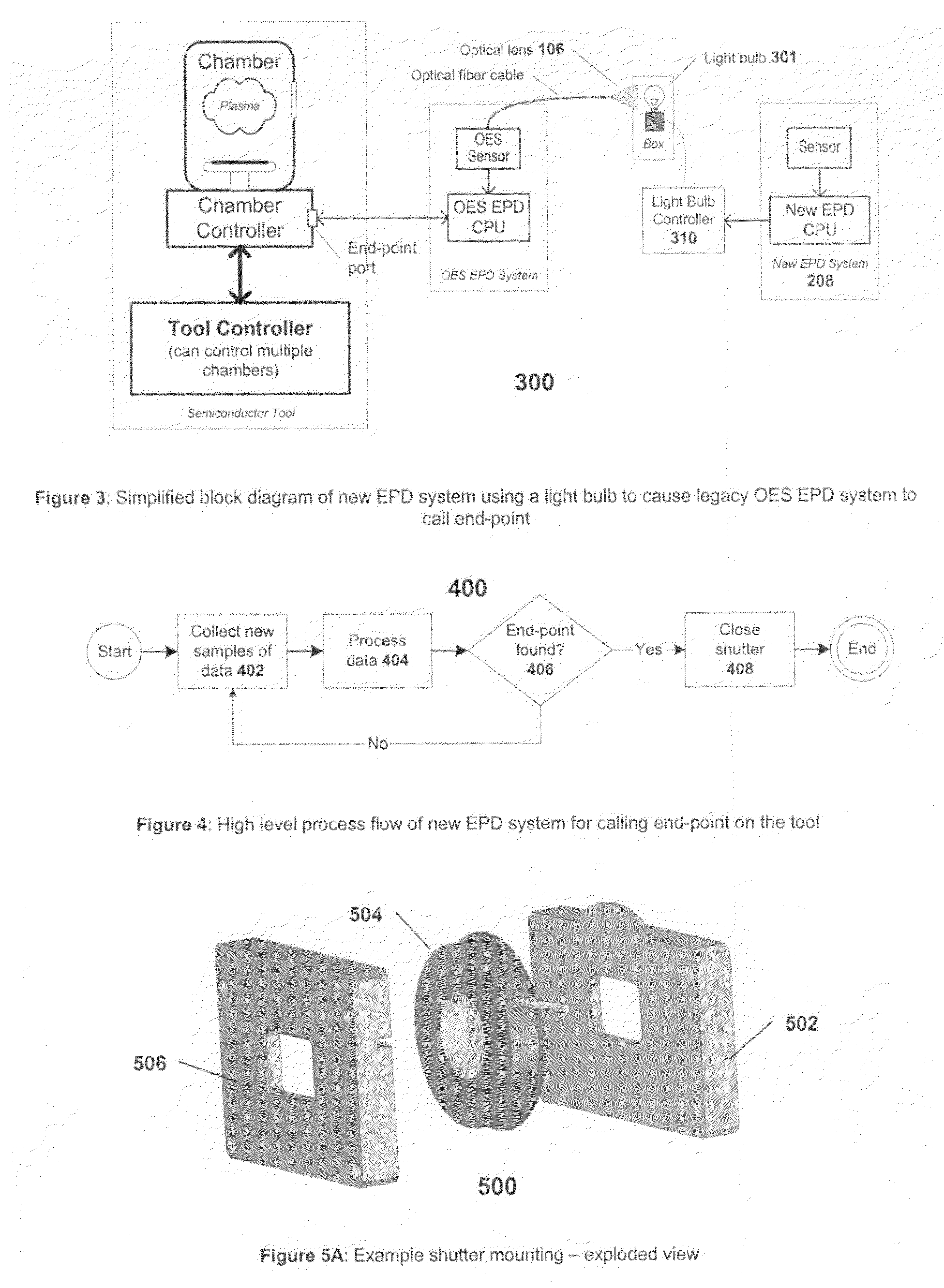System and method for controlling process end-point utilizing legacy end-point system
a technology of process endpoint and endpoint system, which is applied in the direction of data switching network, digital transmission, and testing/measurement of semiconductor/solid-state devices, etc., can solve the problems of not being used, affecting the use of the device, and unable to integrate such new epd systems into the semiconductor tool
- Summary
- Abstract
- Description
- Claims
- Application Information
AI Technical Summary
Benefits of technology
Problems solved by technology
Method used
Image
Examples
Embodiment Construction
[0016]Embodiments in accordance with the present invention allow a second end-point determination (EPD) system to actively control the end-pointing of a semiconductor process chamber, by leveraging a legacy EPD system already integrated with the chamber. In one embodiment, the second EPD system controls a shutter that regulates the amount of light transmitted between a plasma light source and an optical emission spectroscopy (OES) sensor of the legacy OES EPD system. In this embodiment, the legacy OES EPD system is pre-configured to call end-point when an artificial end-point condition occurs, i.e. the intensity of light falls below a pre-set threshold. When the second EPD system determines that an actual end-point condition has been reached, it closes the shutter which causes the light intensity being read by the OES sensor to fall below the pre-set threshold. This in turn triggers an end-point command to the chamber from the legacy OES EPD system.
[0017]Many plasma-based semiconduc...
PUM
| Property | Measurement | Unit |
|---|---|---|
| intensity at wavelength | aaaaa | aaaaa |
| voltage | aaaaa | aaaaa |
| voltage | aaaaa | aaaaa |
Abstract
Description
Claims
Application Information
 Login to View More
Login to View More - R&D
- Intellectual Property
- Life Sciences
- Materials
- Tech Scout
- Unparalleled Data Quality
- Higher Quality Content
- 60% Fewer Hallucinations
Browse by: Latest US Patents, China's latest patents, Technical Efficacy Thesaurus, Application Domain, Technology Topic, Popular Technical Reports.
© 2025 PatSnap. All rights reserved.Legal|Privacy policy|Modern Slavery Act Transparency Statement|Sitemap|About US| Contact US: help@patsnap.com



